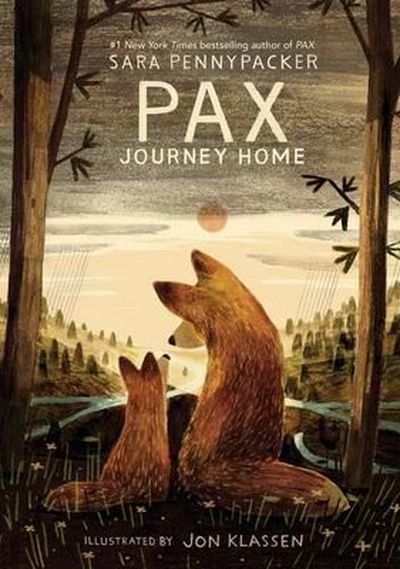In ‘Pax’ sequel, Pennypacker gives story a satisfying ending

Sara Pennypacker has brought readers a sequel to her New York Times bestseller, “Pax.” Published in 2016, “Pax” is about a fox and his boy separated by war and desperate to reunite. Finally at the end of the book, they do find each other, after Peter, the boy, has broken his foot and grown stronger for it, and Pax, the fox, joins wild foxes, learning how to survive on his own. Peter lets him go on his way, knowing Pax has found a new family and is where he should be. It ends, and you want more.
“Pax, Journey Home” starts a year after the events of the first book. Peter is living with Vola, the woman who helped him after he broke his foot, and Pax is with the foxes that took him in during the first book. There are always high expectations with sequels for books like “Pax,” which can be tough to live up to. This book addresses loss, grief and the effects of war – socially, emotionally and environmentally.
Peter is subject to a great deal of loss in both books – his mother, his father and his fox – and tries to shut himself off from those who care for him to prevent any more pain. New characters in the sequel foster emotional development, warning that no matter how hard he tries, something will slip in, making him care again. Of course, they end up being proven right.
The war that was starting in “Pax” has ended by the second book, but people’s lives are still in ruin. The background of both stories is inhabited by the war, but Pennypacker doesn’t give specifics about it. In “Pax,” you are sort of told the conflict is about water, but you don’t know who it is with. She is using this tactic with the setting, as well – you aren’t told where you are, only geographic details that you get to put together in your head.
The effects of the war have had an impact not only on the humans displaced by conflict and lack of clean water, but on the wildlife, as well. Pax’s own family is threatened by unseen dangers left lurking by combat. There are groups working to reverse the damage left by the war, but it might already be too late. It should make readers think critically about what we are doing to the world around us. Are we willing to risk the health of our water and the ecosystems it supports for things as petty as our own conflict and profit?
Both books should be a big hit with kids in elementary school (to listen to or read), with parents and teachers also enjoying them. I found “Journey Home’s” ending very satisfying – it will let you sigh with a smile on your face once you finish it, unlike “Pax,” which left me wanting more, wanting a sequel.
Sylvie Manz is a sophomore at Lewis and Clark High school.